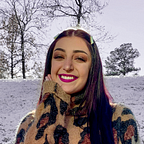Psychedelic-Assisted Psychotherapy Experience Proposal
Amongst all the catastrophic events that have occurred in the past decade, specifically in 2020 alone, millions of individuals are experiencing a halt in their daily routine and faced with unforeseen circumstances, causing a rise in mental health awareness and mental illness diagnoses. Despite this, the development of novel psychiatric medications is declining. How can an exhibition space and social media platform aid the awareness and normalize Psychedelic-Assisted Psychotherapy by shifting the minds of skeptical potential users through the education of historical uses and reputations of drugs? The use of psychedelic drugs for therapeutic purposes have had great successes in the medical community, but have unfortunately had a negative reputation in the general public. Bringing a controversial medical practice into public awareness and eventually into practice may seem like a daunting task to take on, but by breaking down our problem into smaller sub-questions, we can see what obstacles are more feasible to eventually reach our end-goal.
How can we create an opportunity for older generations to reconsider their opinion on drugs and simultaneously reach younger audiences? Where do these taboos stem from and why have they been so long-lasting? Is race or sex a variable in these taboos? If this advocacy project contained personal stories, we would need to find practices that have had success with this type of therapy that are willing to share. What type of medical certification or degree would professionals operating the procedures need? Who are these therapeutic procedures for in the first place? What sort of decompression therapy sessions would have to take place post-procedure? Is there a screening process? What would the therapy centers look like? Where would these centers be located? Where does the funding for this facility come from and what would the cost of the patient be? This platform could also be used to explain how bringing these substances into safe and regulated spaces for therapeutic use, would help to control negative effects, substance abuse, and the unregulated selling of drugs on the street.
After the War On Drugs, many older generations saw drugs as an addictive substance that can only destroy lives, but with the advancement of technology and medical knowledge, psychedelic-assisted psychotherapy could be a revolutionary option for patients of all ages. Mental illness affects people of all ages so the potential patients could be a mixer of younger generations (18 and up) who are in the “willing to learn” and potentially “act” stages of this topic and older generations that are “willing to listen/learn.” For this to be an option in the future, we would also need to consider the thoughts of local and state governments who have previously refused to even look at medical research regarding psychedelic therapy.
For this project, I plan to focus on case studies, articles, and medical papers, and videos (including international sources), and potentially interviewing psychedelic therapy patients, practicing psychiatrists, and government officials. What I hope to learn includes legal regulations, how raising awareness may change public perception, the outcomes of psychedelic therapy, and how advocacy from these patients could help persuade unsure folks and reluctant governments to give this medical treatment a second look.
This is important work to be done because mental illness is nothing to feel shameful for, it is something that shouldn’t be a taboo subject, and it is something we should continuously be striving to improve. By creating an exhibition space and social media platform to aid the awareness and normalize this treatment option, we could help boost the potential for this therapeutic experience to become a reality in medical centers.
